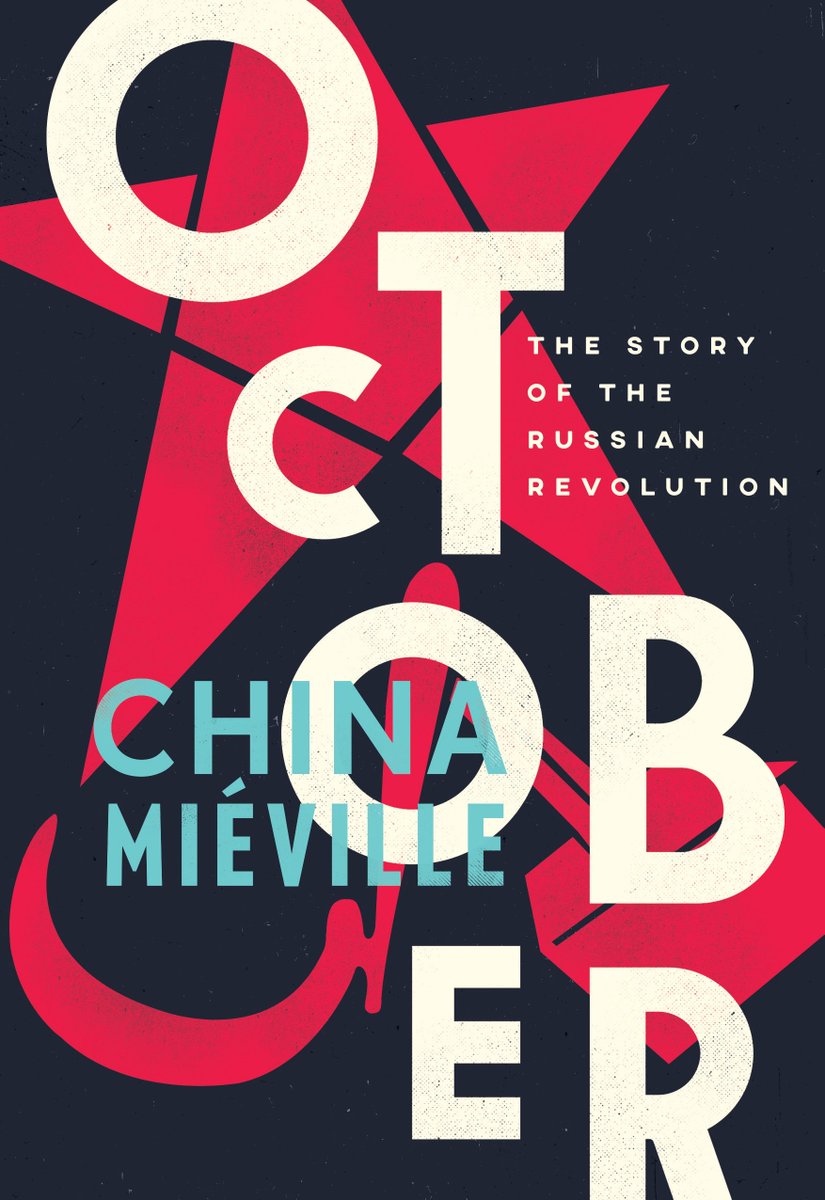Revolutionary histories are blessed and cursed with complexity. The normal way to write a history of a war is to focus on the strategy and tactics and the lived experiences of the fighters and the generals. But revolutionary wars are not won with overwhelming strength or brilliant tactics alone: a revolutionary fights until the enemy changes sides, until the soldiery on the other side changes allegiance as the people rally behind them. A revolution is a story of moods, alliances, ideas and arguments as much as it is a story of cavalry charges and military victories.
Mieville blends the two modes of history, doing his level best to demonstrate that the military victories are always intermixed with the social ones and vice-versa. This means that rather than confining himself to a handful of leaders, Mieville gives us a giant, daunting cast of people whose infighting, alliances, speechifying and prose changed the course of the revolution.

It's a daunting task, especially if you — like me — are prone to mixing up people whose names all start with K and end with -ov or -ich. Even with an appendix of short biographies, it's hard to keep track of the alliances and movements.
That's not for lack of trying. Mieville lens zooms in on these individuals who are making history, then zooms out as the history is made, showing us how the fights in secret meeting rooms and huge palaces turn into battles in the streets beyond — famous military victories, crushing defeats.
More than anything, Mieville conveys the sheer improbability of the revolution, all the times it went terribly wrong before it caught on, the string of crushed uprisings that seemed to prove that the Czar and his regime were unassailably strong, and the timidity of the revolutionary leaders who, time and again were overrun by the people they were supposed to be leading, who, instead, led them, insisting that they seize power, that they not accept minor victories as all they can hope for.
In an age in which opposition parties on both sides of the Atlantic are dominated by appeaser establishments who refuse to listen to the fighters in the streets, there are many lessons to be learned here.
More, Mieville is at pains to show how the flaws in the leadership and movement unity created a situation where opportunists like Stalin could seize power, purge his former comrades, and pervert the revolution — turn its promise of equality and internationalism into a grey, brutal, inward looking brooding thing.
Mieville's combination of dazzling prose and genuine love for his subject make this an extraordinary read, really like no other. It is highly recommended.
October: The Story of the Russian Revolution [China Mieville/Verso]






